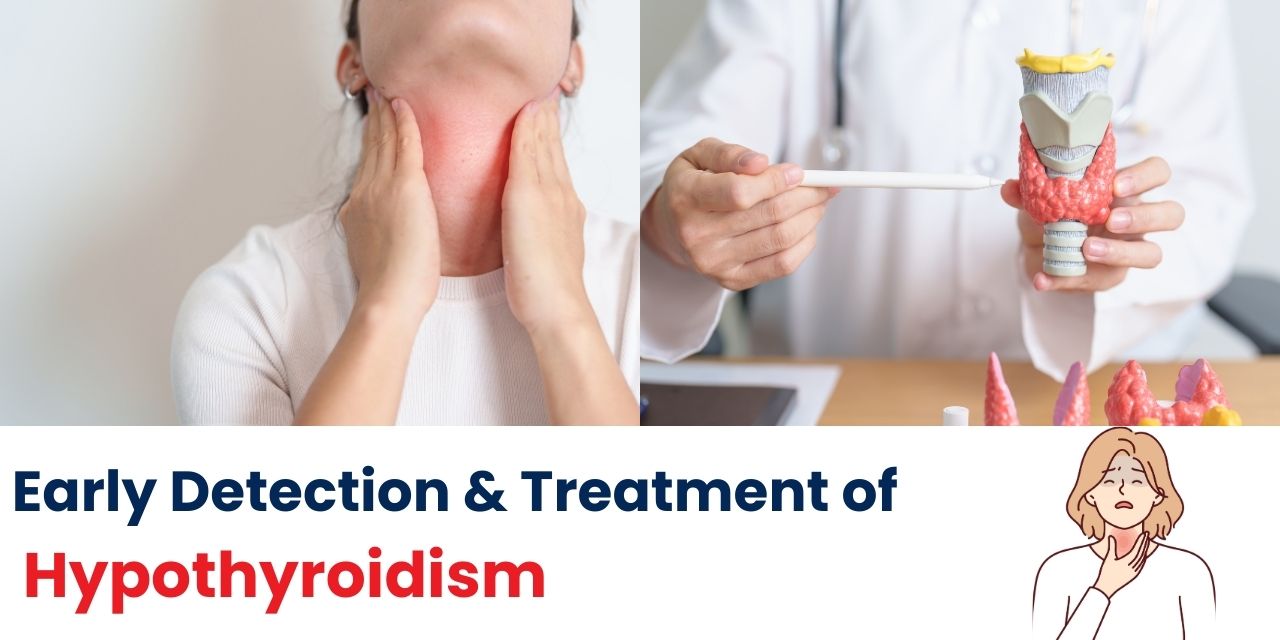Hypothyroidism is a common yet often misunderstood medical condition that occurs when the thyroid gland doesn’t produce enough thyroid hormones to meet the body’s needs. These hormones are essential for regulating metabolism, energy production, and even mood. Understanding the causes, symptoms, and available treatments for hypothyroidism is critical for managing this condition effectively.
In this article, we’ll explore what hypothyroidism is, its causes and symptoms, and the most common treatment options, including hormone replacement therapy.
What is Hypothyroidism?
Hypothyroidism, also known as an underactive thyroid, is a condition where the thyroid gland, located at the base of the neck, fails to produce enough of the hormone thyroxine (T4) and triiodothyronine (T3). These hormones play a vital role in maintaining the body’s metabolism and energy levels.
When the thyroid fails to produce enough hormones, the body’s metabolic rate slows down, leading to a range of symptoms. If left untreated, hypothyroidism can result in severe health complications such as heart disease, infertility, and even myxedema, a rare but life-threatening condition.
Causes of Hypothyroidism
Several factors can contribute to hypothyroidism, including:
- Autoimmune Disease (Hashimoto’s Thyroiditis)
The most common cause of Hypothyroid Condition is Hashimoto’s thyroiditis, an autoimmune disorder where the immune system mistakenly attacks the thyroid gland, reducing its ability to produce hormones. This disease can gradually destroy the thyroid over time. - Thyroid Surgery
Surgical removal of part or all of the thyroid gland due to conditions like thyroid cancer or goitre can result in Hypothyroid Condition, as the remaining gland may not produce sufficient hormones. - Radiation Therapy
Radiation treatment for conditions such as cancer, especially those targeting the neck or head, can damage the thyroid gland, leading to Hypothyroid Condition. - Medications
Certain medications, such as lithium (used to treat mental health disorders), can interfere with thyroid function and may induce Hypothyroid Condition. - Iodine Deficiency or Excess
Iodine is essential for thyroid hormone production, and both deficiency and excess iodine in the diet can cause hypothyroidism. However, iodine deficiency is rare in areas where iodine is added to salt and food products. - Congenital Hypothyroidism
Some individuals are born with an underactive thyroid or with no thyroid gland at all. This condition is usually identified and treated shortly after birth.
Common Symptoms of Hypothyroidism
Hypothyroidism symptoms vary from person to person and can be subtle in the early stages. Since the thyroid hormones affect nearly every system in the body, the symptoms of hypothyroidism can manifest in a variety of ways, including:
- Fatigue: Constant tiredness or sluggishness, even after getting enough sleep.
- Weight Gain: Unexplained weight gain, despite no significant change in diet or exercise.
- Cold Intolerance: Sensitivity to cold temperatures.
- Dry Skin and Hair: Brittle nails, dry skin, and thinning hair.
- Depression: Mood swings, depression, or feelings of sadness.
- Constipation: Digestive issues, especially chronic constipation.
- Muscle Weakness: Aching joints and muscles.
- Memory Problems: Difficulty concentrating or remembering things.
If you experience any of these symptoms, it’s crucial to visit a healthcare professional for a proper diagnosis.
Diagnosing Hypothyroidism
Hypothyroidism is typically diagnosed through a blood test that measures thyroid hormone levels, particularly Thyroid Stimulating Hormone (TSH). Elevated levels of TSH, along with low levels of T4, indicate hypothyroidism.
Common Treatments for Hypothyroidism
The most effective and common treatment for hypothyroidism is hormone replacement therapy, which aims to restore normal thyroid hormone levels in the body. Here’s an overview of the common treatment methods:
➽ Levothyroxine (Synthetic T4)
The standard treatment for hypothyroidism involves taking a synthetic version of thyroxine (T4). Levothyroxine is a daily oral medication that mimics the hormone your thyroid would normally produce. It’s well-tolerated and helps restore normal thyroid function, improving symptoms like fatigue and weight gain.
The dosage of levothyroxine is adjusted based on blood tests to ensure you are receiving the appropriate amount for your body’s needs. Regular monitoring of your TSH levels is important to make any necessary adjustments.
➽ Dietary and Lifestyle Adjustments
Although medication is the primary treatment, diet can also play a role in managing hypothyroidism. Consuming a balanced diet rich in iodine, selenium, and zinc can support thyroid function. Additionally, avoiding excess processed foods, gluten, and high-sugar foods may improve overall well-being.
➽ Regular Monitoring
Once diagnosed with hypothyroidism, ongoing management is crucial. Regular checkups with your healthcare provider ensure your hormone levels remain stable, and your symptoms are under control. Most patients will need to continue hormone replacement therapy for life.
Conclusion
Hypothyroidism is a manageable condition when diagnosed early and treated properly. Routine checkups, thyroid hormone replacement therapy, and a healthy lifestyle can significantly improve the quality of life for individuals with hypothyroidism.
If you suspect you have hypothyroidism, or if you are experiencing symptoms such as fatigue, weight gain, or cold intolerance, don’t hesitate to visit Salhotra Hospital. As the best thyroid treatment hospital in Pathankot, we provide comprehensive care and personalised treatment plans to help you regain control of your health. Early diagnosis and consistent management can help you maintain optimal thyroid function and lead a healthier, more fulfilling life. For more information, please contact us at +919888829779.

